LLNL Computing’s ground-breaking research and development activities, innovative technologies, and world-class staff are often featured in various media outlets.

Source: LLNL Computing
LLNL continues to expand Girls Who Code outreach
Lawrence Livermore is celebrating nearly a decade of bringing the Girls Who Code program to local middle and high schools. Since standing up the effort in 2016, more than 900 students have participated in the clubs, and the offerings continue to expand.
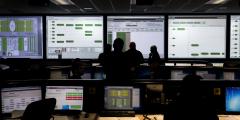
Source: LLNL Computing
Robust verification of control system enables NIF software updates
NIF Computing deploys regular updates to its computer control systems to ensure NIF continues to achieve ignition.
Computational Science Lasers and Optics Software Engineering Software Quality Assurance
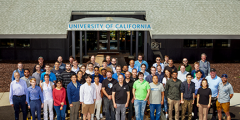
Source: LLNL Computing
Meeting of the minds: advanced math for the exascale era
Hosted at LLNL, the Center for Efficient Exascale Discretizations’ annual event featured breakout discussions, more than two dozen speakers, and an evening of bocce ball.
Co-Design Computational Math Computational Science Discrete Mathematics Earth Systems Emerging Architectures Events Exascale HPC Systems and Software
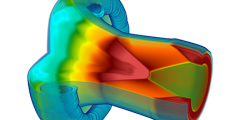
Source: LLNL Computing
ECP co-design center wraps up seven years of collaboration
The Center for Efficient Exascale Discretizations has developed innovative mathematical algorithms for the DOE’s next generation of supercomputers.
Co-Design Collaborations Computational Math Discrete Mathematics Emerging Architectures Exascale HPC Systems and Software Mathematical Optimization Open-Source Software PDE Methods Performance, Portability, and Productivity Proxy Apps Software Engineering
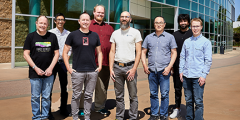
Source: LLNL Computing
Road to El Capitan 5: A framework for complex workflows
Flux, next-generation resource and job management software, steps up to support emerging use cases.
Emerging Architectures Exascale HPC Architectures HPC Systems and Software Hybrid/Heterogeneous Open-Source Software Resource and Workflow Management
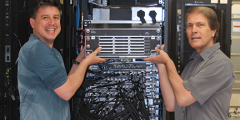
Source: LLNL Computing
Road to El Capitan 4: Storage in the exascale era
Innovative hardware provides near-node local storage alongside large-capacity storage.
Co-Design Collaborations Emerging Architectures Exascale HPC Architectures HPC Systems and Software Hybrid/Heterogeneous Open-Source Software Storage, File Systems, and I/O

Source: LLNL Computing
Road to El Capitan 3: The right operating system
The Tri-Lab Operating System Stack (TOSS) ensures other national labs’ supercomputing needs are met.
Co-Design Collaborations Emerging Architectures Exascale HPC Architectures HPC Systems and Software Hybrid/Heterogeneous
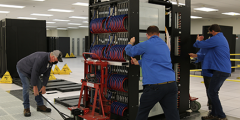
Source: LLNL Computing
Road to El Capitan 2: All the moving parts
Siting a supercomputer requires close coordination of hardware, software, applications, and Livermore Computing facilities.
Co-Design Emerging Architectures Exascale HPC Architectures HPC Systems and Software Hybrid/Heterogeneous Performance, Portability, and Productivity Resource and Workflow Management
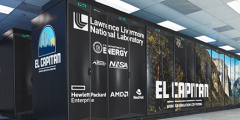
Source: LLNL Computing
Road to El Capitan 1: It takes a village
Livermore Computing is making significant progress toward siting the NNSA’s first exascale supercomputer.
Co-Design Collaborations Emerging Architectures Exascale HPC Architectures HPC Systems and Software Hybrid/Heterogeneous
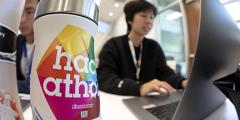
Source: LLNL Computing
Summer hackathon addresses Lab's many acronyms, plus other projects (SHALMA-POP)
This season’s hackathon featured Lab improvement projects, work tasks, and personal enrichment.

Source: LLNL Computing
Explainable artificial intelligence can enhance scientific workflows
Using explainable artificial intelligence techniques can help increase the reach of machine learning applications in materials science, making the process of designing new materials much more efficient.
AI/ML Computational Science Data Science Materials and Manufacturing ML Theory Scientific ML Scientific Visualization
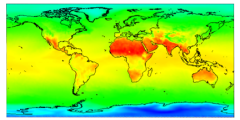
Source: LLNL Computing
VisIt project team adds color usability improvements
The Lab’s workhorse visualization tool provides expanded color map features, including for visually impaired users.
Data Science Open-Source Software Scientific Visualization Software Engineering
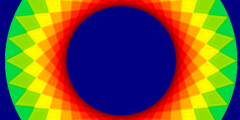
Source: LLNL Computing
CASC Newsletter | Vol 13 | July 2023
This issue highlights some of CASC’s contributions to making controlled laboratory fusion possible at the National Ignition Facility.
Collaborations Computational Math Data Science Lasers and Optics Scientific ML Scientific Visualization Transport
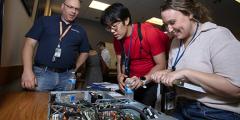
Source: LLNL Computing
Developer Day returns, in person and squeakier than ever
2023’s Developer Day was a two-day event for the first time, balancing an all-virtual technical program with a fully in-person networking day.
Careers Events Open-Source Software Software Applications Software Engineering

Source: LLNL Computing
Improving models of clouds and atmospheric turbulence
With simple mathematical modifications to a common model of clouds and turbulence, LLNL scientists and their collaborators helped minimize nonphysical results.
Collaborations Computational Math Computational Science Earth Systems

Source: LLNL Computing
Investigation of disaggregated memory systems wins poster award
Splitting memory resources in HPC between local nodes and a larger shared remote pool can help better support computational applications.
Awards Data Movement and Memory HPC Systems and Software Hybrid/Heterogeneous
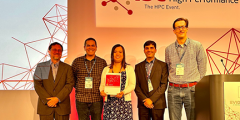
Source: LLNL Computing
Best paper winner finds the sources of calculation inconsistencies
Updating a compiler can affect how code runs, leading to inconsistencies in outputs and creating problems for scientists. A new tool automatically finds the sources of these inconsistencies.
Awards Compiler Technology HPC Systems and Software Open-Source Software
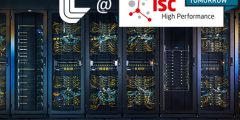
Source: LLNL Computing
ISC23 event calendar
LLNL participates in the ISC High Performance Conference (ISC23) on May 21–25.
Co-Design Compiler Technology Data Movement and Memory Emerging Architectures Events Exascale HPC Systems and Software Hybrid/Heterogeneous Power Management Programming Languages and Models Software Build and Installation

Source: LLNL Computing
Patent applies machine learning to industrial control systems
A novel ML method discovers and predicts key data about networked devices.
Critical Infrastructure Cyber Data Analytics Cyber Security Data Science Deep Learning Natural Language Processing Network Engineering

Source: LLNL Computing
A look back: women in early computing at LLNL
LLNL’s archives recount the contributions of women who developed code during the Lab's early decades.
Careers Community HPC Systems and Software Programming Languages and Models
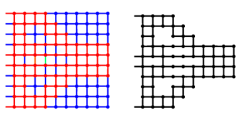
Source: LLNL Computing
Patent for reduced order modeling method boosts lattice design optimization
A new component-wise reduced order modeling method enables high-fidelity lattice design optimization.
Collaborations Computational Math Computational Science Data Science Materials and Manufacturing Mathematical Optimization
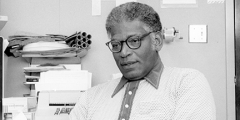
Source: LLNL Computing
A look back: Robert Hughes and the development of FORTRAN
LLNL’s archives provide a glimpse into the career and contributions of a computing pioneer.
Careers Community Compiler Technology Computational Math HPC Systems and Software Programming Languages and Models
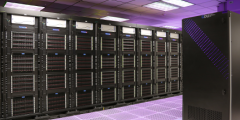
Source: LLNL Computing
Best paper winner improves scientific workflow performance
Combining specialized software tools with heterogeneous HPC hardware requires an intelligent workflow performance optimization strategy.
Biology/Biomedicine Collaborations Computational Science HPC Architectures HPC Systems and Software Hybrid/Heterogeneous Open-Source Software Performance, Portability, and Productivity Resource and Workflow Management Scientific Cloud Computing
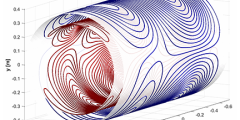
Source: LLNL Computing
CASC Newsletter | Vol 12 | November 2022
Highlights include MFEM community workshops, compiler co-design, HPC standards committees, and AI/ML for national security.
AI/ML Biology/Biomedicine Co-Design Collaborations Compiler Technology Computational Math Computational Science Computer Vision Data Science Deep Learning Discrete Mathematics Exascale HPC Systems and Software Natural Language Processing Open-Source Software Performance, Portability, and Productivity Programming Languages and Models
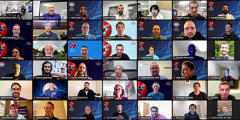
Source: LLNL Computing
MFEM workshop showcases application variety and broad impact
The second annual MFEM workshop brought together the project’s global user and developer community for technical talks, Q&A, and more.
Computational Math Computational Science Discrete Mathematics Events Open-Source Software Outreach PDE Methods Software Libraries

